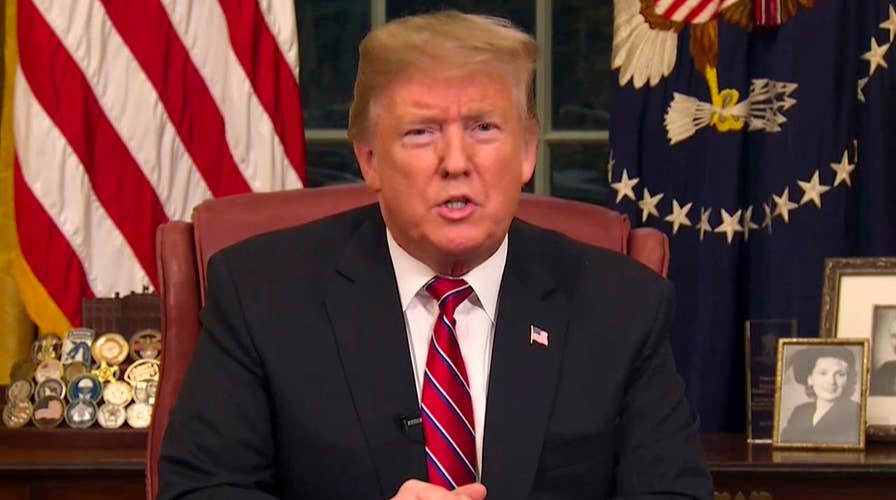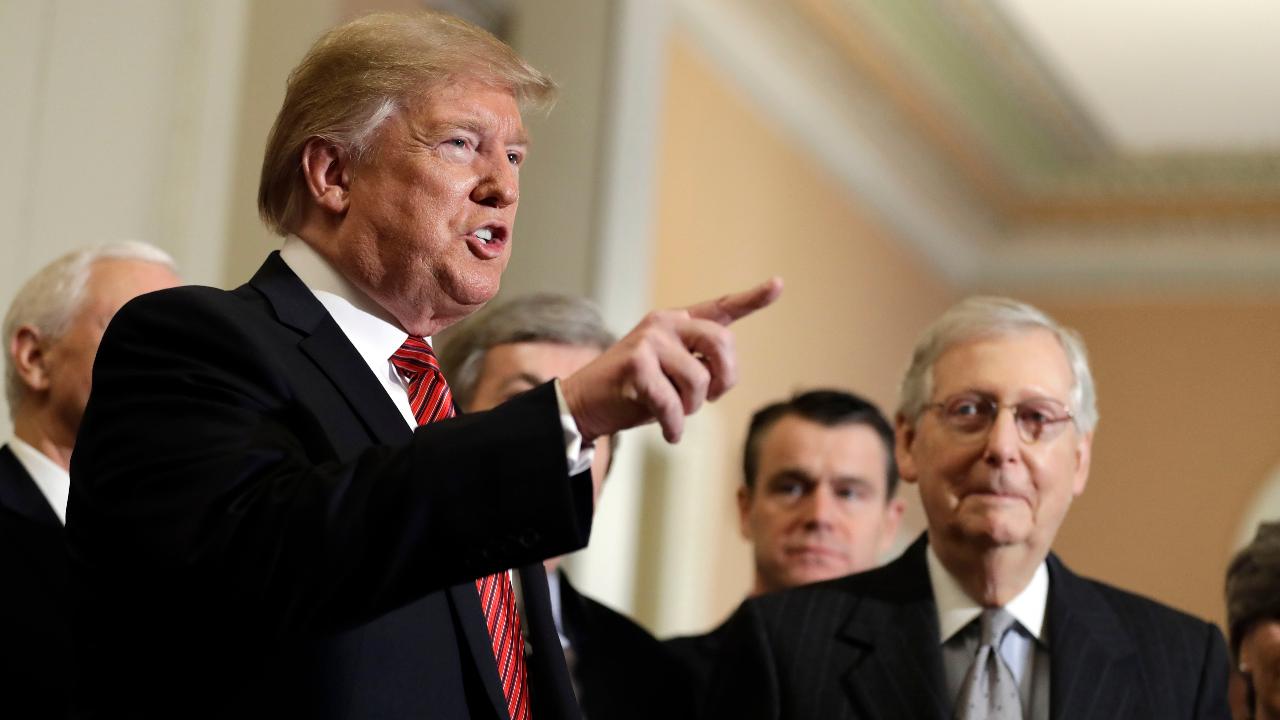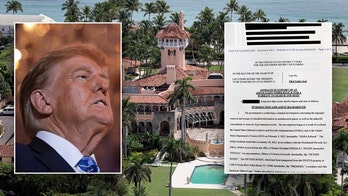President Trump makes case for border wall funding in prime-time Oval Office address to the nation
Trump declares a humanitarian crisis, crisis of the heart and a crisis of the soul; reaction and analysis on 'The Five.'
Just one day after he walked out of a contentious White House meeting with Congressional leaders, President Trump is preparing personally to visit the southern border as he continues to contemplate whether to declare a national emergency to fund a wall there.
Trump is scheduled to visit near the U.S.-Mexico border in McAllen, Texas, a city of 143,000 on the river, on Thursday, which would be the 20th day of the ongoing partial federal government shutdown affecting nearly 800,000 federal workers. Trump is expected to be joined by his senior adviser and son-in-law Jared Kushner, acting White House chief of staff Mick Mulvaney, and Homeland Security Secretary Kirstjen Nielsen.
While details on Trump's travel schedule are scant, a local paper reported that advance teams from the Secret Service have locked down the Anzalduas Park in Mission, Texas that "sits along the Rio Grande in the shadow of the Anzalduas International Bridge and is frequently patrolled by Border Patrol agents attempting to intercept those crossing into the country illegally."
White House Press Secretary Sarah Sanders first announced the border trip on Monday, saying the president would "meet with those on the frontlines of the national security and humanitarian crisis." (The president previously viewed wall prototypes near the border in San Diego, Calif. in March 2018.)
Responding to a report in The New York Times suggesting Trump did not really want to go on the Thursday trip and saw the visit as a necessary publicity stunt organized by his communications team, White House adviser Kellyanne Conway on Wednesday told reporters Trump was "enthusiastic" and "does want to meet with men and women" protecting the border "to hear what it is they see, what they need."
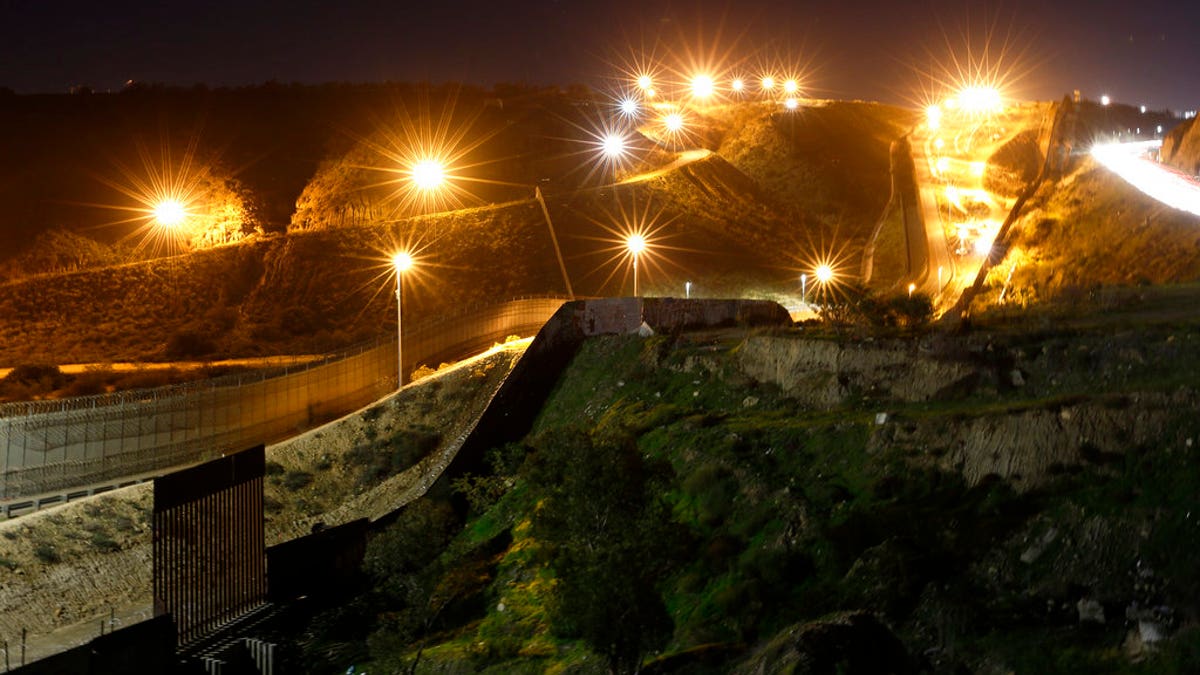
FILE - In this Monday, Jan. 7, 2019, file photo, floodlights from the U.S, illuminate multiple border walls, seen from Tijuana, Mexico. (AP Photo/Gregory Bull, File)
It increasingly appeared possible that Trump, who repeatedly has threatened to declare a state of emergency, may use the visit to determine whether to take that extraordinary step.
The National Emergencies Act grants the president broad authority to declare emergencies, and several federal laws then could clear a path for the White House to move ahead with building a wall.
One statute, 33 U.S. Code § 2293 - "Reprogramming during national emergencies," permits the president to "apply the resources of the Department of the Army’s civil works program, including funds, personnel, and equipment, to construct or assist in the construction, operation, maintenance, and repair of authorized civil works, military construction, and civil defense projects that are essential to the national defense."
TRUMP HANDS OUT CANDY, WALKS OUT OF EXPLOSIVE WHITE HOUSE MEETING WITH TOP DEMS
Another law, 10 U.S. Code § 2808 - "Construction authority in the event of a declaration of war or national emergency," permits the secretary of defense, in a presidentially declared emergency, to use "funds that have been appropriated for military construction" for the purpose of undertaking "military construction projects."
More than 35 million people watched Trump's first-ever prime-time address Tuesday night from the Oval Office on the importance of border security, which was followed by a rebuttal from House Speaker Nancy Pelosi, D-Calif., and Senate Minority Leader Chuck Schumer, D-N.Y. Trump did not declare a state of emergency during that address, instead calling for compromise -- although he did not budge on his demand for $5.7 billion in funding for a border wall.
Nevertheless, on Wednesday, both sides seemed further than ever from the compromise that Trump demanded in his address. The Democratic-led House approved a bill to fund the Treasury Department, the IRS and other agencies for the next year as part of a strategy to reopen the government on a piecemeal basis, but Senate Republicans dismissed the attempt as a nonstarter without any wall funding. Eight Republicans supported the measure.
The acting director of the White House budget office, Russell Vought, promised this week that tax refunds still would go out even if the IRS remained unfunded, because customary rules will be changed to make the payments possible. He told reporters an "indefinite appropriation" was available for the refunds, which would go out as normal.
Trump walked out of a White House meeting with congressional leaders Wednesday afternoon over the partial government shutdown, Pelosi again rejected supporting new funding for a border wall, according to those in the meeting.
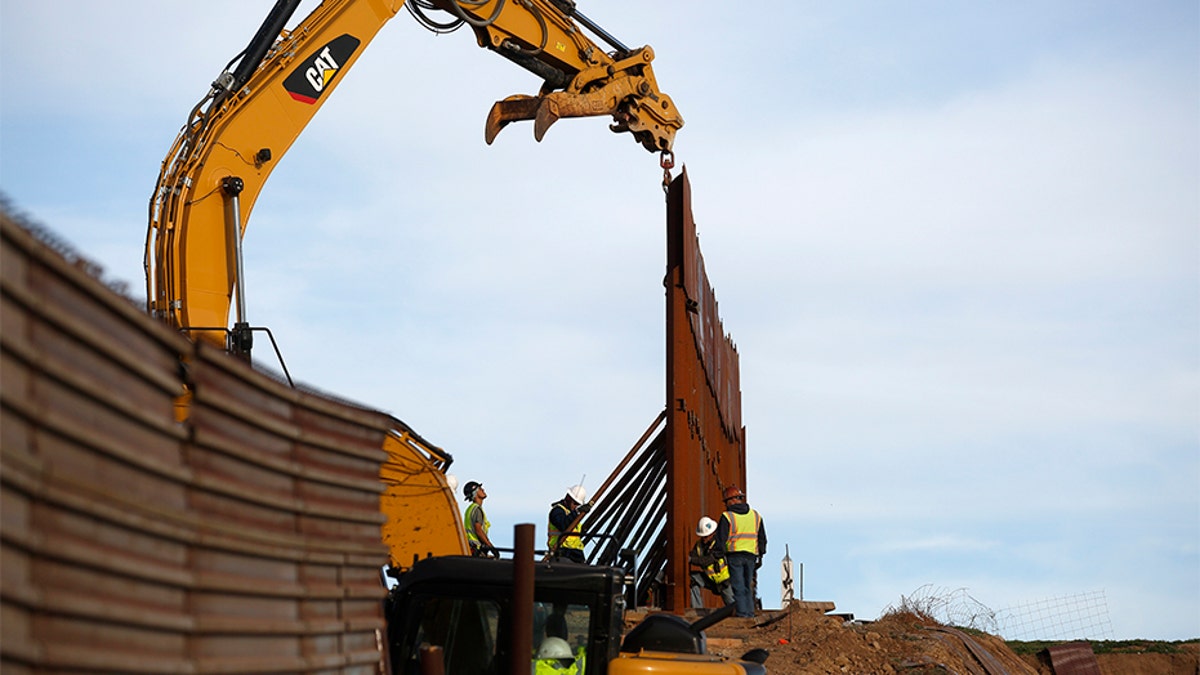
Workers replace sections of the border wall, left, with new sections, right, on Tuesday in Tijuana, Mexico. (AP)
Although most top Republicans backed Trump on Wednesday -- with House Minority Whip Steve Scalise, R-La., calling Trump's remarks “a firm commitment to reopening the government while also securing our southern border" -- there were some signs that not all Republicans were aligned with the White House.
GOP West Virginia Rep. Shelley Moore Capito, a member of the Homeland Security appropriations subcommittee, dismissed Trump's comments that the shutdown could go on for "years." Seven Republicans voted in favor of a Democratic bill to end the shutdown last week without funding for a border wall, and more have come out suggesting that they will back individual bills to fund certain agencies in the federal government without wall funding.
But, any defections were few and far between, Republican leaders insisted.
"Quite frankly, I see no wavering,” North Carolina Republican Rep. Mark Meadows, who chairs the conservative House Freedom Caucus, said Wednesday.
Some money already has been appropriated to construct additional barriers on the southern border. In March, Congress funded 33 miles of walls and fencing in Texas, and the federal government has started surveying land along the border in the state and announced plans to start construction next month.
The government has laid out plans that would cut across private land in the Rio Grande Valley. Those in the way would include landowners who have lived in the valley for generations, environmental groups and a 19th-century chapel.
CLICK HERE TO GET THE FOX NEWS APP
Democratic New Mexico Gov. Michelle Lujan Grisham, meanwhile, announced this week she would visit her state’s southern border with Mexico on Friday.
Grisham, who has described Trump’s idea for a wall as outdated and ineffectual, previously indicated she would reconsider the state’s deployment of National Guard troops to the border by Republican predecessor Susana Martinez. The state sent about 180 troops.
Fox News' Brooke Singman, Alex Pappas and The Associated Press contributed to this report.
